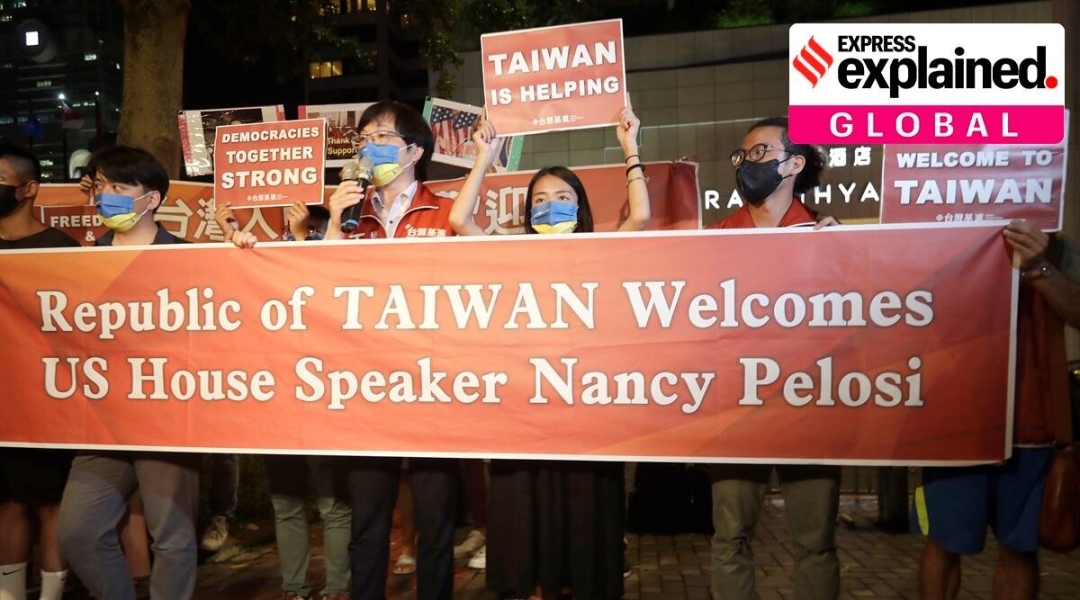What is China’s problem with Nancy Pelosi visiting Taiwan?

The Speaker of the House of Representatives, Nancy Pelosi, landed in Taiwan on Tuesday (August 2) evening, ignoring Chinese threats and a warning by President Xi Jinping, delivered to President Joe Biden last week, to “not play with fire” (by provoking China).
Pelosi’s visit to Taiwan is the highest-level visit by an American official to the island in a quarter century. The senior US politician has been critical of China on multiple fronts over the decades.
The US has maintained a ‘One China’ policy since the 1970s, under which it recognises Taiwan as a part of China. But it has unofficial ties with Taiwan as well — a strategy that is known as strategic or deliberate ambiguity. Beijing considers Taiwan a part of China, threatens it frequently, and has not ruled out taking the island by military force at any time.
For China, the presence of a senior American figure in Taiwan would indicate some kind of US support for Taiwan’s independence. Chinese Foreign Ministry spokesperson Zhao Lijiang has said China would take “resolute and strong measures” if the visit takes place.
Pelosi going to Taiwan would “severely undermine China’s sovereignty and territorial integrity, gravely impact the foundation of China-US relations and send a seriously wrong signal to Taiwan independence forces”, he has said.
There is a long history to China-Taiwan tensions. Very briefly, it is as follows:
Taiwan is an island about 160 km off the coast of southeastern China, opposite the Chinese cities of Fuzhou, Quanzhou, and Xiamen. It was administered by the imperial Qing dynasty, but its control passed to the Japanese in 1895. After the defeat of Japan in World War II, the island passed back into Chinese hands.
After the communists led by Mao Zedong won the civil war in mainland China, Chiang Kai-shek, the leader of the nationalist Kuomintang party, fled to Taiwan in 1949. Chiang Kai-shek set up the government of the Republic of China on the island, and remained President until 1975.
Beijing has never recognised the existence of Taiwan as an independent political entity, arguing that it was always a Chinese province. Taiwan says that the modern Chinese state was only formed after the revolution of 1911, and it was not a part of that state or of the People’s Republic of China that was established after the communist revolution.
While the political tensions have continued, China and Taiwan have had economic ties. Many migrants from Taiwan work in China, and China has investments in Taiwan.
The United Nations does not recognise Taiwan as a separate country; in fact, only 13 countries around the world — mainly in South America, the Caribbean, Oceania, and the Vatican — do.
The American strategic ambiguity is just that — ambiguous. In June, President Biden said that the US would defend Taiwan if it was invaded, but it was clarified soon afterward that America does not support Taiwan’s independence. While the US has no formal ties with Taipei, it remains Taiwan’s most important international backer and arms supplier.
Back in 1997, then House Speaker Newt Gingrich of the Republican Party visited Taiwan, and appeared to caution China against precipitate action. Referring to his meetings with China’s leaders, Gingrich said: “We want you to understand, we will defend Taiwan. Period,” The New York Times reported at the time.
